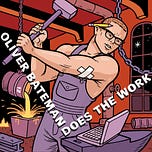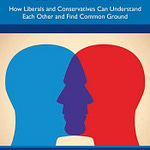
Earlier this week, I spoke with my good friend Anthony Roberts, a longtime steroid researcher with decades covering every aspect of the fitness industry, about his recent investigative article revealing that bodybuilding influencers Bostin Loyd and Jerry Ward had acted as federal informants in a case involving illegal peptide and supplement sales.
The Transformix Peptides Investigation
Anthony's article explores the strange world of "research chemicals" in bodybuilding, where substances are sold with "not for human consumption" labels as a thin legal cover. Here, bodybuilding influencers Bostin Loyd and Jerry Ward cooperated with FDA investigators in a case against several supplement companies owned by the same two individuals (Transformix Peptides, Boss Sports Nutrition, and US Fusion Supply) that were selling illegal research chemicals, peptides, and SARMs.
Key timeline:
August 2016: Jerry Ward was interviewed by FDA agents
September 2016: Bostin Loyd was interviewed by FDA agents
Both provided information that contributed to federal prosecution
March 2018: Anthony Novak and Spencer Gill (company owners) were indicted
August 2018: Novak and Gill pled guilty and began cooperating with authorities
They avoided prison time by helping prosecute others and providing customer lists
This led to sanctions against several competitive athletes by USADA
A business relationship gone wrong As Anthony explained, "These guys promoted them up to and until they started having major suspicions that these guys were shortchanging them on paychecks." After both Loyd and Ward left the company, they made public videos expressing their grievances — essentially hanging a "green light to prosecutors" over Transformix.
Federal agents then interviewed both influencers. Ward spoke with the FDA for about 30 minutes, and Loyd for 2.5 hours. Both provided information confirming the owners knew they were selling illegal substances intended for human consumption — the critical element needed for prosecution.
"In a research chemical case, the thing that doesn't prove itself is the intent for humans to use the product. That's what you really need someone like Boston, someone like Jerry to sit down and say, 'Yeah, they knew this was illegal because humans were using it.'"
The Strange Economics of Peptide Companies
Anthony broke down how these operations function financially:
Bostin Loyd earned between $10,000-15,000 monthly promoting Transformix
He claimed to own 33% of the company but had no access to financial information
The owners (Anthony Novak and Spencer Gill) made approximately $1.6 million (in a year)1
This business model relies heavily on influencer marketing, with influencers getting a commission for each sale made with their discount code. As Anthony explained, this creates serious legal exposure:
"I'm endorsing a drug that's illegal for you to sell, and you're paying me for that sale. You're not paying me a straight advertising fee. You're literally paying me for the exact number of drugs that I sell. So that puts me in extreme danger."
Despite this clear legal risk, Anthony noted: "I've never seen an influencer ever charged with some kind of aiding and abetting ever in my life."
The Legal Fallout and Informant Chain
In March 2018, Anthony Novak and Spencer Gill, the owners of Transformix Peptides, were indicted on conspiracy charges. After pleading guilty, they themselves became informants to get lighter sentences:
"They pretty quickly decided that they were gonna work with the authorities to set some people up... If you give us enough, you won't go to jail at all right, like we've we've undercharged this. So if you give us enough help, you get us enough people to replace you. You won't see a day in jail."
This led to sanctions against several competitive athletes, including three weightlifters, two of whom were also CrossFit athletes. Ironically, as Anthony pointed out, CrossFit isn't even part of USADA's testing pool, so numerous other athletes who purchased from Transformix likely went undetected.
The Nature of "Research Chemicals"
Anthony provided fascinating context on the "research chemicals" market:
"Research chemicals are labeled 'not for human consumption'... This is a way to sell plain old drugs that aren't controlled substances. Not anything that's going to raise an eyebrow over at the DEA."
Many products sold as "research chemicals" are actually pharmaceutical compounds in development:
MK-677 stands for Merck-677
LGD-4033 (Ligandrol) comes from Ligand Pharmaceuticals
GW-501516 is from GlaxoWellcome
These naming conventions reveal that these substances are still in developmental phases, not approved for human use or ready to receive trademarked, pre-approved drug names (e.g., Gleemonex).
The Folk Medicine World of Bodybuilding Enhancement
Throughout our conversation, Anthony highlighted how much of the bodybuilding world operates on anecdotal information rather than scientific certainty:
"If you think of any Olympic shot putter right, what, how long does a shot put take to complete? 2 seconds. How long did it take for them to recover? Like 2 months. That max effort shot put in the Olympics — that guy's destroyed. Ronnie [Coleman] would just go like anyone else goes to work. Show up, hit 800 [pounds]. His training videos... he could come back next week and do it. It would be like watching somebody go to track practice and running like a 9.7, you know, just for training. That would be the equivalent right? I don't know that people understand."
This explains the current state of Ronnie Coleman (at times wheelchair-bound, now apparently ambulatory again) versus others like Jay Cutler who have aged better despite similar competitive careers.
On the efficacy of various enhancement substances: "SARMs are hit and miss... I think a lot of people are going to gain a bit of muscle on them, but I think it peters out quickly. It's not like steroids where you can do a 12-week cycle and keep increasing the dose and keep getting results."
Why This Investigation Matters
Anthony explained the strange ethics of informing in this case. Both Loyd and Ward remained respected figures despite cooperating with authorities:
"These guys were really well liked. Right? They were absolutely loved. So I think when you're that well liked, you operate with a different reputational physics... They said it publicly already. Does it now make you a snitch that you said it privately in a room with an FDA agent? I don't think so."
This case reveals a complex world where enforcement is selective, information is unreliable, and business relationships in the fitness industry are often unstable. The story also demonstrates a pattern in FDA investigations where informants lead to bigger targets in a chain of prosecutions, with enforcement typically focusing on companies making the most money rather than individual influencers.
Anthony discusses the Loyd/Ward situation with bodybuilding insiders John Romano, Dave Palumbo, Gregg Valentino, and Larry Pollock.
Uncertainty, Deception, and the Performance Enhancement World
One of the most revealing aspects of our conversation was the uncertainty that pervades even elite bodybuilding circles. Anthony explained how many users, including well-known names like Bostin Loyd, often have no idea what they're actually taking:
"Bostin was on RX Muscle one time and he was talking about his cycles, and he really wasn't sure what was real and what was fake. He would say, 'I'm taking 400 milligrams of this, 600 of this, 400 of this,' and it was very high. But Dave Palumbo turned to him and said, 'Yeah, but you don't really know if these are dosed right, or even if they're real like, you have no idea.'"
This creates a bizarre situation where even experienced users are essentially operating on faith. As Anthony described:
"Imagine if you just didn't know what exercises were... That's what it's like looking at someone's cycle that they say, 'This is the cycle that worked the best for me.' But you don't know what was real and what wasn't, or it could have been something totally different. It's not uncommon for steroid dealers to take a low dose of Dianabol, which is fairly cheap oral, and claim that it's a higher dose of Anavar."
Even wealthy, high-profile figures face the same uncertainty with compounds that were never FDA-approved:
"When it comes to things that have just never been FDA approved — right when it comes to something like trenbolone — [anyone's] gonna run into the same problems because they've got the same pipeline. It's still gonna be people selling something illegal, whereas if you're talking about testosterone, at least you have a shot that it's going to be real."
The result is a system based largely on oral tradition, trial and error, and personal experimentation rather than scientific methodology:
"After 80 years of these drugs being out, we know that they work. We saw how well they work with like a simple, systematic doping program in East Germany. But what we don't know is what works for whom and why."
This uncertainty extends to the modern social media influencer world, where presenting an idealized image takes precedence over accuracy:
"If you're making money through social media, you kind of have to only post your best all the time. It's got to be touched up, and it's got to be the angle. There's no room for the developmental phase of the year, right? Where they're going to bulk up. You can't take a bunch of fat photos. You have to take every photo in the magic mirror."
Anthony contrasted this with Boston Loyd's unusually honest approach: "Being realistic. And, like, 'Hey, I'm off a cycle. This is what I look like when I'm not on.' This is me, you know, 20-30 pounds lighter, but fatter."
What emerges is a world built on layers of deception — from mislabeled products and uncertain dosing to carefully curated social media images and questionable business practices — all against the backdrop of selective law enforcement and the constant economic pressure of the fitness industry. It’s ceaselessly fascinating!
Read these!
Oliver’s VQR article about steroid culture, to which Anthony lent his expertise
The Dallas McCarver autopsy report, which was originally requested and then posted by Anthony
The entire archive of articles by Anthony Roberts posted at MesoRX, which includes deep dives into USADA investigative procedures, bodybuilding precontest “coaches” practicing medicine without a license, the flawed sentencing guidelines for anabolic steroids, and more
An article suggested by Anthony that Oliver later wrote for MEL Magazine regarding the proper use of the term “bodybuilder”
Per Anthony, the largest-scale peptide operations — ones that earn $5-10 million a year — are far more likely to attract FDA scrutiny.













Share this post